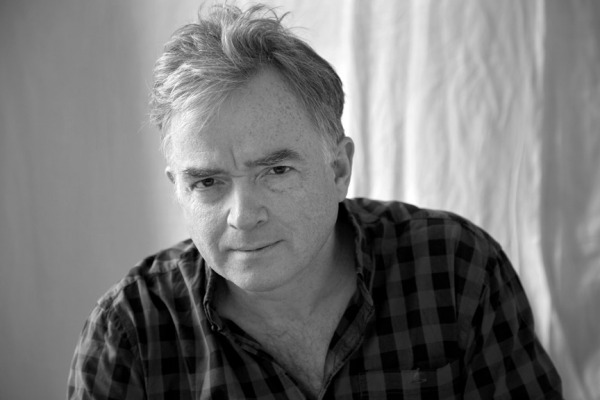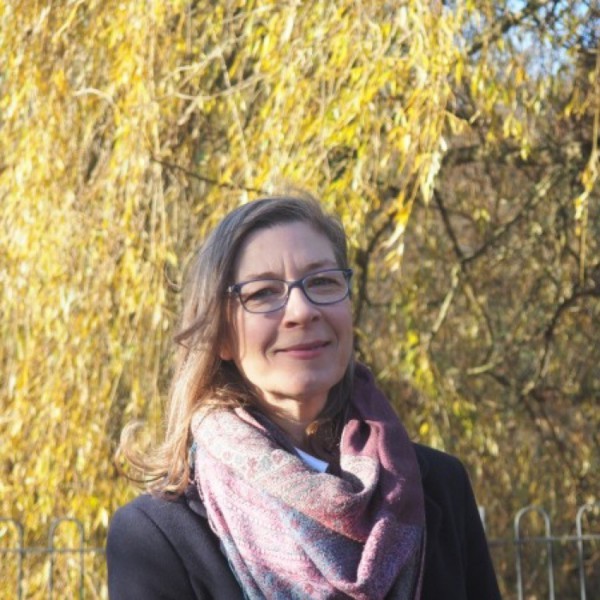
Glyn Maxwell
Glyn Maxwell’s collections include Pluto (Picador), Hide Now (Picador), The Nerve (Picador), and The Breakage (Faber), all of which won or were shortlisted for major prizes. His epic poem Time’s Fool (Picador) is in development as a feature film with Fox Searchlight. On Poetry (Oberon), a guidebook for the general reader, was described as ‘the best book about poetry I’ve ever read’ in The Guardian. In 2016, he published its sequel, Drinks With Dead Poets. His plays and opera libretti have been performed in many countries. He has taught at Amherst, Princeton, Columbia, and NYU in the USA; Warwick, Essex, and Goldsmiths in the UK.
‘A great teacher, Derek Walcott, led me to the three most important voices in my development – Auden, Frost, and Edward Thomas. This may make me sound like a dyed-in-the-wool formalist – perhaps I was long ago, though I’ve never been conservative with any kind of c – but the love of these poets, and countless different others, led me to a much broader and wilder sense of what poetry can be. The subjects and styles of poetry are infinitely various, and the best thing a teacher can do is raise awareness of how form works.
I don’t do this in an academic way, as I didn’t learn it like that. There are two dangerous pathways facing a new poet. The first is to feel that poetry used to be great and is now a mess of fragments. The second is to feel that all beauty is nostalgia and only the contemporary matters. Both attitudes are dumb. Form in poetry is the sound of captured time, so to ignore it is to reduce poems to the constant reiteration of a personal passing moment. Which is literally unmemorable.
I illustrate uses of form both in the canonical works we look at, and the work-in-progress of the students. My only canon is what has survived, my only praxis figuring out the reasons why. I tend to avoid the contemporary. Partly because I feel students will be immersed in it anyway, but more so because the worst course for a new poet is to set off in search of “the sound that gets published”. I love all the forms of poetry that are not the isolated subjective statement: drama, libretto, translation, song, anything where the “I” is somehow all of us, and not one lone heart. I constantly invent games and exercises by way of illustration.’

Meryl Pugh
Meryl Pugh’s latest publication is a work of creative non-fiction, Feral Borough (Penned in the Margins, 2022). She is the author three pamphlets, Wife of Osiris (Verve Poetry Press, 2021), The Bridle (Salt, 2011) and Relinquish (Arrowhead Press, 2007) and one full collection. Natural Phenomena (Penned in the Margins, 2018) was a Poetry Book Society Guest Choice and longlisted for the inaugural Laurel Prize. Having previously worked in secondary and museum education, she has also taught for Morley College and Poetry School. She holds a PhD in Critical and Creative Writing from University of East Anglia, where she taught for nearly ten years, and is currently at work on her second collection.
‘My early influences were John Donne, Shakespeare and T S Eliot, the result of a rigidly ‘canonical’ education. Their meticulous use of form and precision in word choice is something to which I still aspire. My other influences are the poets who’ve taught me, both inside and outside the University; Mimi Khalvati, Pascale Petit, Lavinia Greenlaw, Denise Riley. From their work I’ve taken the productive use of tension, the centrality of image and form and an interest in the strangeness of language; the way in which a poem might refuse to be ‘transparent’, to ‘make sense’, to meet you on anything other than its own grounds.
My research interests stem from the work I did during my PhD, where I considered the modes of the feral and pastoral as sites of witness to the frictions between culture and nature. So it’s safe to say that ecopoetics – and more broadly, the negotiations between environment and interiority – continue to be particular obsessions of mine. I’m also fascinated by the fragmentation and condensing of poetic utterance, the tension within a poem between the visual and the aural – and the counterpoint of page space and text.
On the MA, I offer a module on ‘Writing Environment’ in which we think about the relationship between humans and our planet’s cohabitees, as well as ‘Ekphrasis’ – broadly, how we might respond to the ‘made’; objects and artworks in museums and galleries.
I also lead sessions on free verse lineation, prose poetry, the contemporary sonnet, experiment and ritual, and indeterminacy and ‘difficulty’ in poetry.’

